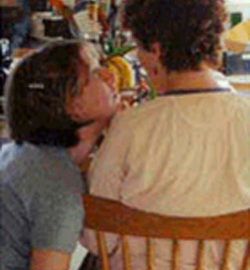
Q. I’m concerned about my almost 15 year-old boy. He is depressed and with good reason. He is slightly on the spectrum and has A.D.D. (no hyperactivity). We’ve moved twice in 14 months and we’re currently renting. He is a creature of habit and our lives have been very unpredictable for almost three years. He lost his baby brother when he was 6 and had to deal with Mom and Dad’s grief. He is totally quiet and therefore doesn’t make friends. Being stuck at home doesn’t help. He has never really talked much, especially about emotions. How can I help him open up?
A. Everything you have described is life events that have been out of your or your son’s control. Very hard but this is life happening. These are situations that people have to deal with. Depression has all to do with how those events are perceived and dealt with. If your son’s emotions are swept under the carpet, ignored or criticized, then he will be left feeling unheard, alone, misunderstood, etc. – fertile ground for depression. But if














